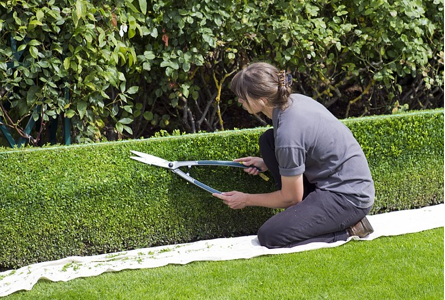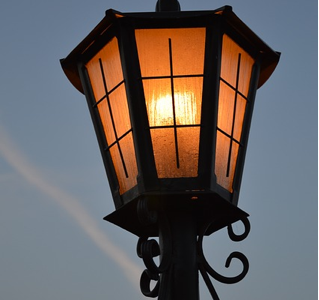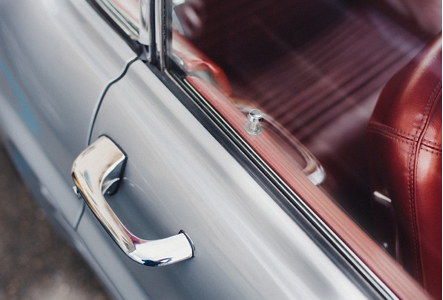by HomeAdvisor

Image via Pixabay
Here’s the good
news: mid-June statistics for 2015 show a drop in home theft. The
bad news? There are still plenty of criminals interested in breaking into your
home. However, that doesn’t mean you can’t make it tough for them! The first
step in home crime prevention is to eliminate opportunity, and it’s up to you
to cut those chances.
Though many people
only worry about nighttime security, most burglaries
actually occur during daylight hours when most people are at
work, school, or running errands. It’s important to take precautions during the
day, at night, and any time you leave the house to ensure your home stays
secure.
When it comes to
protecting your family and your belongings, you can’t be too careful, and there
are plenty of ways you can protect your home from invasion or burglary. This guide
will discuss prevention steps to take both inside and outside your home, and
even ways to keep your home protected while you’re away on vacation. Don’t let
your home fall prey to a thief: make it a waste of his time and resources!
Walk around the
exterior of your home and scout out its weaknesses. The best way to protect your home from the
outside is to survey it with the eyes of a burglar. If you can easily tell that
a window could be pried open, a thief will definitely be able to come to the
same conclusion. You can even contact your local police department and they’ll
provide a courtesy home assessment that can help you identify your home’s weak
spots.
While you’re checking
for vulnerable spots, take note of any expensive electronics, art, or furniture
that is easily spotted through windows. You don’t have to redecorate your
entire home to keep expensive items out of sight, but it doesn’t hurt to make
small adjustments where you can. No need to tempt thieves any more than you have
to!
Keep shrubbery around
entrances and walkways trimmed. The last thing you want is to make it easier for a thief to hide
when attempting to break in, so eliminate his options for hiding spots. He may
only need a few minutes of cover to make his entry but with no place to hide
while doing it, he’s less likely to even try. You could even plant thorny
shrubs by your windows to make it not only difficult to break in, but painful!

Image via Pixabay
Build a fence. If you don’t have one already, a fence can be
an excellent way to keep unwanted visitors off your property. Open chain-link
or ornamental metal fencing tend to be preferable and are
ideally secured into concrete to prevent lifting. Solid fences can be easier to
climb and offer thieves a place to hide, though some homeowners prefer them for
privacy and noise reduction. You can better secure them by having sharp pointed
tops or, if you don’t mind rough barbed wire fencing.
Stow expensive items
like grills, cars, and bikes in the garage. Though it may seem like a hassle to roll out
the grill for every barbecue, leaving it out makes it an easy target for
thieves. They don’t even have to enter your home to grab it, and if it’s got
wheels it can be a breeze to sneak away with. If your area only offers street
parking, always lock your car and be sure to park in a well-lit area.
Use curtains on garage
and basement windows. Chances are these areas don’t need the sunlight, so put up curtains or blinds for privacy and protection. Stowing
your outdoor valuables only does so much good if they’re constantly on display!
Install motion sensor
lighting around your home, especially at entrances. Shine a spotlight on a potential intruder
before he can even touch your doors or windows by adding extra lighting with
motion detectors at entrances and especially dark corners of your home. If you
live in an apartment, ask your landlord to install sufficient lighting in
walkways and halls to eliminate dark corners.
Get to know your
neighbors. Crime tends to be
lower in tight-knit communities because neighbors are more likely to look out
for each other and can easily spot a stranger. Your neighbors can be one of
your best assets in home crime prevention because they offer extra eyes and an
outside perspective. Plus if they have a different work or school schedule from
yours, they might be around during the day when you’re away and can alert you
to any suspicious activity that may occur in your absence.
Keep your yard free of
toys, tools, and ladders. A yard littered with toys signals to a thief that the house may
be filled with equally interesting entertainment, like game consoles, tablets,
or laptops. A ladder or toolbox left out even briefly for an afternoon can give
an opportunistic thief help in gaining access to your house.
Talk to your
neighborhood association about increased lighting on your street. Burglars often case an entire street or
neighborhood to determine if it’s a good target, but often prefer to do so in
the dark of night. A well-lit neighborhood will likely deter him from your
area, or at the very least make it very difficult for him to slip away
undetected.

Image via Pixabay
Prune trees around
two-story homes. A
determined crook may scale a tree and break into an upstairs window if branches
are long enough to give him access. If you have a second floor, trim back tree branches to prevent a cat burglar from
making his move.
Consider forming a
neighborhood watch program. This will give you the opportunity to get to know your neighbors better. and
create an invaluable awareness and commitment to crime prevention in your area.
You can speak to your local police department about giving your group an
informal lecture that can provide insight into identifying a suspicious person
and what to do if you spot one loitering on your street, how to recognize a
burglary in progress, how to recognize an auto theft in progress, and what to
do in an emergency. Local PD will also usually distribute free literature on
home safety and sometimes even offer window stickers and ID cards identifying
your neighborhood organization.
Work with your neighbors
to clean up the neighborhood if needed. A run-down, graffiti-lined, littered street
can send the message to criminals that the residents of your area don’t care about
the neighborhood or each other. That makes a prime location for theft. You can
contact your local public works department to assist in the clean-up. It can be
an excellent chance to bond with your neighbors, not to mention make your area
a more beautiful place to live.
Keep fences, gates,
and garage doors locked. It’s worth investing in a quality padlock for each outside
entrance, even if you only lock it at night. However, since most friends and
family won’t mind calling ahead to let you know they’re visiting, it’s best to
leave them locked at all times. Never leave your garage door open if you aren’t
in it or outside and able to keep an eye on it.
Install large,
reflective numbers on your house and mailbox. This makes it easier for police to identify
your home in the event of an emergency. Burglars prefer dark houses difficult
to identify by address as it can buy them crucial spare moments in the event
they’re caught in the act.
Secure your car. If you must park on the street, do so in a
well-lit area and bring valuables like cell phones, purses, GPS devices, and
satellite radios inside. Never leave anything of value in plain view, and
always lock the doors and roll up windows. Break-ins can occur in even the
safest neighborhoods, and an unlocked car is one of the easiest possible
targets. Never leave a spare key in the visor or anywhere else inside, even if
the car is locked.

Image via Pixabay
Keep all doors and
windows closed and locked at all times. An open exterior window or door is an
invitation for burglars to easily enter your home, so keep them shut and
securely locked whether you’re home or not. Don’t underestimate strong window
locks, and update them if needed. Thieves know how to spot weak locks that
would be easily forced open. Make sure exterior doors have deadbolt locks.
Sliding doors should have vertical bolts and a metal or wooden rod in the track
to prevent being forced open or doors being lifted off the track. Never leave
your home without locking the front door, no matter how brief your trip. Even
if it’s pouring rain, don’t forget to take the extra moment to lock up.
Burglars don’t take days off due to weather!
And don’t forget the
door attached to the garage. It’s one of the easiest targets and a likely route
of entry. Don’t depend on your automatic garage door for full security.
Change the locks when
moving into a new place. If you’re a renter, ask the landlord to change them if it wasn’t already
done. Even if an old tenant returned all the keys originally issued, there’s no
way to know for sure if there were ever other copies made and distributed. It’s
better to be safe than sorry, especially when it comes to a stranger being able
to walk into your locked home.
Secure valuables in a
home safe or lockbox. If it is small and not mounted, consider having your safe bolted
to the floor since many burglars will simply take it with them Give your
pass code or combination only to a trusted loved one in case of emergency.
Don’t leave it posted anywhere in your house easily accessible to an intruder.
Don’t label your
personal keys or or hide spares outside. If your keys are labeled and get lost or
stolen you could be in big trouble, especially if your wallet with your ID and
address are with them. And thieves know to look under mats and in the gravel for fake rocks to
find hidden keys, so instead leave a spare with a trusted neighbor. If you live
in a rural area and your closest neighbor is miles down the road, opt for a
combination lockbox in a discreet area of your property.

Image via Pixabay
Add privacy film to
decorative glass on and around exterior doors. Stained and decorative glass displays can be a
beautiful addition to any entrance, but they can present a bit of a security
issue. Line them with privacy film to distort the view from the
outside and reduce the chances of window shopping or alerting an unwanted
visitor to your presence (or lack thereof). This can be especially beneficial
for anyone who lives alone or in a house with children old enough to be left on
their own.
Consider buying a home
security system. There
are countless features with any security system, and some particularly valuable
ones are outdoor motion detectors, sensors at exterior doors, windows, and the
door attached to the garage, an outdoor alarm to alert other neighbors to an
intrusion, and security cameras. Select the features that best fit your needs
and be sure to go with a well-known, reputable company. Once it’s installed,
make it a regular habit to use it. Though it may seem inconvenient to have to
arm the system every time you leave the house, many burglars are aware that the
responsibility is often neglected and may not be deterred by window stickers or
yard signs warning of home protection.
Do your best to learn
and inform your family about the security system to cut down on false alarms.
They can actually bring on
expensive fines not to mention annoy your neighbors. Plus, you
don’t want to have a boy-who-cried-wolf effect where your neighbors eventually
learn to ignore your alarm anytime it goes off!
Reinforce windows with
safety glass or metal bars. It may seem an extreme step, but burglars will often break a
small window in order to gain entry. Make it impossible for them to break through
by installing safety glass or impossible to squeeze through by installing
metal bars. There are plenty of decorative options for metal
grilles that can make the adjustment both practical and aesthetically-pleasing.
Protecting Your Home While You’re on Vacation
Double- and
triple-check all doors and windows before you leave. Make sure your house is as locked-up and
secure as it can be in your absence. (Don’t forget the door leading to the
garage!) Be sure to leave some curtains and blinds open to give the illusion
that someone is around. Thieves tend to take note of a house that’s clearly
been closed up.
Talk to a trusted
neighbor about helping create a “lived-in” look. Have them use your outdoor trash cans and collect your mail,
newspapers, and any delivered packages. Stacked up mail and newspapers along
with empty trash cans can be a clear sign to anyone that you’re not home and
may be gone a while. If you’re taking a winter getaway, ask your neighbor to
create tire tracks in your driveway and leave footprints leading up to your
front door to create the illusion that someone is home. If you’re taking an
extended summer vacation, pay someone to cut your grass and keep the yard tidy.
Don’t forget to give
your spare key directly to your neighbor rather than leaving it under the mat
or in a faux rock or statue. It’s important to leave a key in case of
emergencies, but it’s also helpful to have someone check in on your home
periodically to ensure no one has entered in your absence. Make sure you leave
a contact number where you can be reached while you’re away. And always return
the favor to a neighbor in need!
Put timers on
lights. Select a few rooms in
your house to remain lit to reduce the chances that any thief casing the
neighborhood will notice that you’ve been gone. Have outdoor lights, especially
around entrances, set to light up every evening. A bright house welcomes
friendly guests, but a dark house welcomes undesirable visitors.
Lock your garage door
and disconnect the automatic opener. This is an easy, but often forgotten step to
keep your home safe while away. Garage doors seem like impenetrable forces so
it’s easy to overlook additional steps in securing them. But if you’re going to
be gone for a week and won’t need the automatic lift anyway, why not disconnect
it and add an easy extra layer of security?
Leave a radio on and
turn down your doorbell. A battery-operated radio is a practical, cheap way to make it
sound like someone is around. And since many burglars ring the doorbell or knock to see if anyone’s home turning
down the sound of the doorbell combined with a loud radio will make thieves
unsure if the house is empty or if the resident simply doesn’t hear the door.
Don’t advertise your
trip. It’s pretty common for
people to post all about their upcoming trip on social media, but avoid the
urge. The more people who know your house will be empty, the more you open
yourself up to the possibility of a break-in. Similarly, don’t leave a message
on your landline answering machine that you’re out of town.
Home invasion and
burglary may never truly be eliminated from society, but their threats
shouldn’t cause you to live your life in fear. Take these simple measures to
secure your home, and reduce the chances that a crook will even look at it
twice!
Article Source: How to
Safeguard Your Home Against Burglary & Crime
Related Article: Burglary Prevention Tips when you're on vacation or away from home

No comments:
Post a Comment